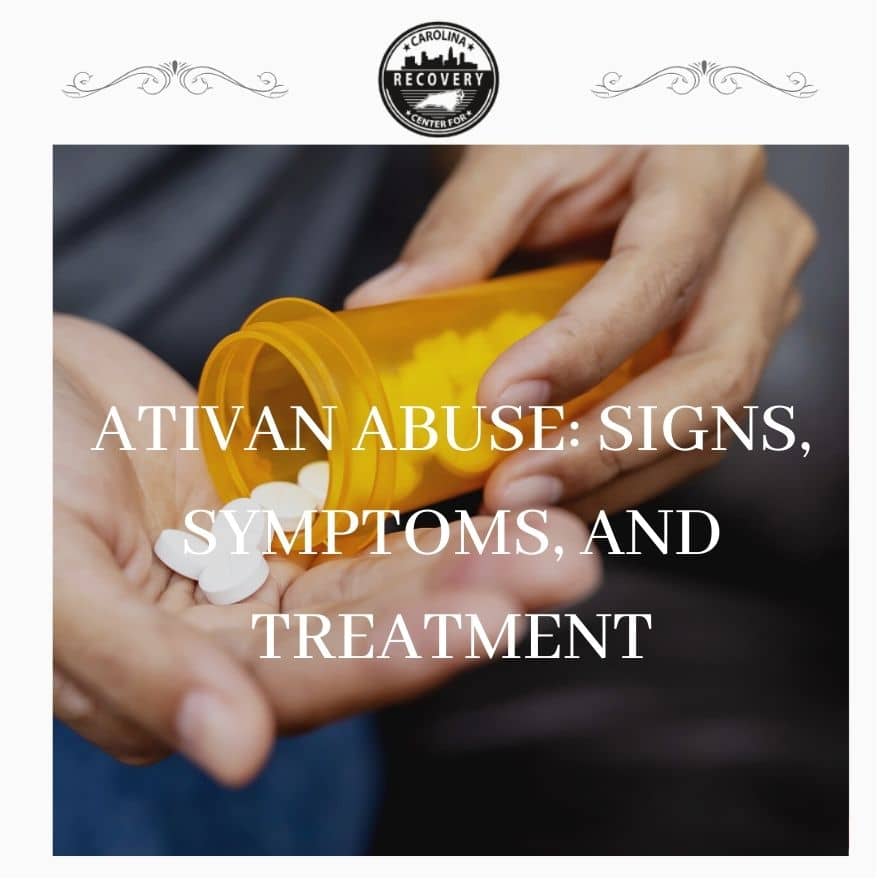Ativan Abuse: Signs, Symptoms, and Treatment

Medically Verified: 2/1/24
Medical Reviewer
Chief Editor

All of the information on this page has been reviewed and verified by a certified addiction professional.
Addiction is a serious and complex condition that impacts every aspect of a person’s life. An addiction can cause significant harm to your mental and physical health. It can test even the strongest relationships and lead to life-altering legal or financial consequences.
While certain risk factors may increase a person’s risk of becoming addicted to drugs or alcohol, anyone who uses substances for a prolonged period is at risk. And although many people imagine that illicit drugs carry a more significant risk of dependence, many prescription drugs are addictive.
Ativan is one of those addictive prescription drugs. This medication is used to treat a range of mental and physical health conditions but has the potential to be highly addictive to users. The more you know about Ativan abuse, the better able you will be to recognize and address it.
If you or someone you love needs substance abuse treatment, please contact the Carolina Center for Recovery specialists today.
What is Ativan?
Ativan is a prescription drug that is also known as Lorazepam. It is a benzodiazepine that doctors may prescribe for its tranquilizing or sedating effects. Ativan is used to treat various mental and physical health conditions, including:
- Bipolar disorder
- Nausea during chemotherapy
- Sleep problems
- Agitation
- Muscle spasms
- Symptoms of alcohol withdrawal
People who take Ativan may develop an addiction to it, even when taken as prescribed. Ativan is often used recreationally, which poses a higher risk of addiction.
Signs of Ativan Abuse
Ativan is a highly addictive benzodiazepine. Even when taken exactly as prescribed, some people develop tolerance or dependence on the drug. Recognizing the signs of Ativan abuse may help you more easily identify and address a problem.
Some common signs of Ativan abuse include:
- Loss of appetite
- Headaches
- Tremors
- Nausea and vomiting
- Dizziness
- Confusion
- Sweating
- Sleeping too much
- Losing consciousness–”passing out”
Over a period of abuse, a person may begin to develop symptoms of an addiction to Ativan. Some signs of addiction are:
- Doctor shopping or having multiple prescriptions for Ativan
- Isolating from friends and family
- Losing interest in hobbies or relationships
- Hiding or lying about Ativan use
- Using more Ativan than recommended or using more frequently
- Legal or financial trouble related to Ativan abuse
An addiction can wreak havoc on a person’s life. It is essential to find a treatment program to help a person overcome the addiction’s physical, emotional, and behavioral aspects.
Dangers of Ativan Abuse
Ativan abuse can cause short- and long-term harm to a person’s health. In the short term, people who abuse Ativan may experience:
- Excessive sedation
- Depressed breathing
- Tremors
- Seizures
- Poor memory
- Loss of consciousness
Over time, people who abuse Ativan can develop an addiction that requires treatment. Some people who abuse Ativan may experience changes in brain structure that can lead to cognitive impairments. For some, this decline in cognitive functioning may be permanent–even after they stop using Ativan.
The risk of severe damage to your health increases if you combine Ativan with other drugs. When people mix Ativan and other benzodiazepines or opiates, the drugs can work simultaneously to depress the central nervous system (CNS). This can result in a life-threatening benzodiazepine overdose which is a medical emergency.
Symptoms of Ativan Withdrawal
People who choose to stop using Ativan may face a torrent of emotional and physical withdrawal symptoms. For many people, Ativan withdrawal is so uncomfortable that they require medically-supervised detoxification to achieve a safe, complete detox from the drug.
The timeline for withdrawal symptoms may be affected by the amount of Ativan a person uses, using other substances, and other personal factors. Generally, withdrawal symptoms begin within 24 hours of a person’s last dose of Ativan. These symptoms include:
- Sweating
- Dizziness
- Hallucinations
- Delusions
- Anxiety
- Depression
- Short and long-term memory loss
The most acute physical and emotional symptoms may last for 10 to 14 days, while some symptoms can linger for years.
Treatment for Ativan Abuse and Addiction
It is not safe to quit using Ativan abruptly. People who attempt to quit “cold turkey” may be at risk of developing severe, sometimes life-threatening, depression. People may develop self-harm or suicidal ideation without supervision and treatment during withdrawal. Withdrawal may also cause significant discomfort that prevents people from completing detox independently.
Addiction and medical specialists generally recommend a medically-supervised detox program when people stop using Ativan. During detox, medical and support staff monitor and treat patients for withdrawal symptoms.
After completing detox, addiction treatment is necessary to address the complex roots of the addiction. Addiction treatment programs generally include a mix of evidence-based and holistic treatments, like:
- Individual therapy
- Group support
- Education
- Medications
- Mental health treatment
- Family therapy
- Holistic therapies, such as art and music therapy, nutrition counseling, mindfulness practices, massage, and exercise
Benzodiazepine rehab is offered in outpatient, partial hospitalization, and inpatient or residential settings. A doctor or addiction specialist will evaluate each person’s needs to determine the correct level of care required to treat their addiction.
Get Help Now
If you or someone you love requires addiction treatment or support in recovery, reach out to the Carolina Center for Recovery specialists today.
References:

